Transgender struggle: 'I had to keep who I was secret'
- Published

Caroline flew fighter jets during the Cold War, before switching to helicopters
"I had to live two lives. I had to keep who I was secret," says Caroline Paige, recalling her life over 20 years ago, when she was a Royal Air Force navigator - and living as a man.
During her 35-year air force career, she flew F4 Phantom fighters intercepting Soviet bombers during the Cold War. She served in the Gulf War and then switched from jets to helicopters - in Bosnia, Iraq and Afghanistan.
It was a macho environment and very "Top Gun" but Caroline loved her job - despite needing to hide her true identity due to a law barring LGBTQ+ people in the UK's armed forces.
"The consequences of being outed were quite horrendous," she says. But when she hit her thirties, she was tired of pretence.
One option was to leave and transition outside the military. But Caroline decided to fight her case.
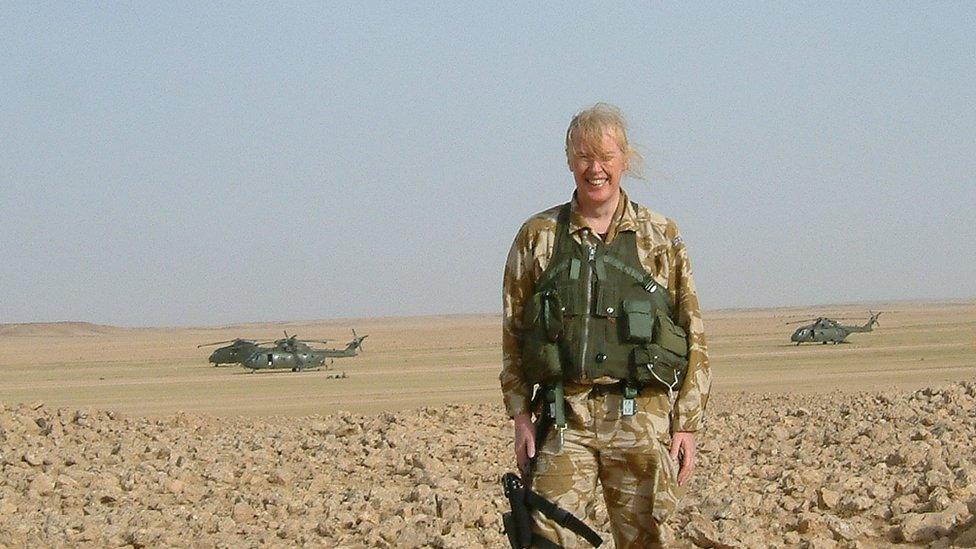
"I got a lot of hostile reaction with people calling for my resignation," says Caroline
Despite the law being against her, she presented her medical assessments to her unit's medical officer. Caroline says she was petrified but the officer, also a woman, was "absolutely wonderful and became an ally" who took up her case.
This was Caroline's first step in taking on the military establishment and becoming the first transgender officer to serve openly in the Britain's armed forces.
"As soon as my presence was known within the military, I got a lot of hostile reaction with people calling for my resignation," she recalls.
"I was outed in the media. People were demanding why a trans person should be allowed to serve. I would walk into a room and people would turn their backs to me. They would ask what I was doing in 'their' air force - sniggering, giggling, pointing, laughing and mocking."
Over the cacophony of threats and insults, the voices of allies grew louder but Caroline says she still felt very vulnerable: "I had to prove my value to the military."
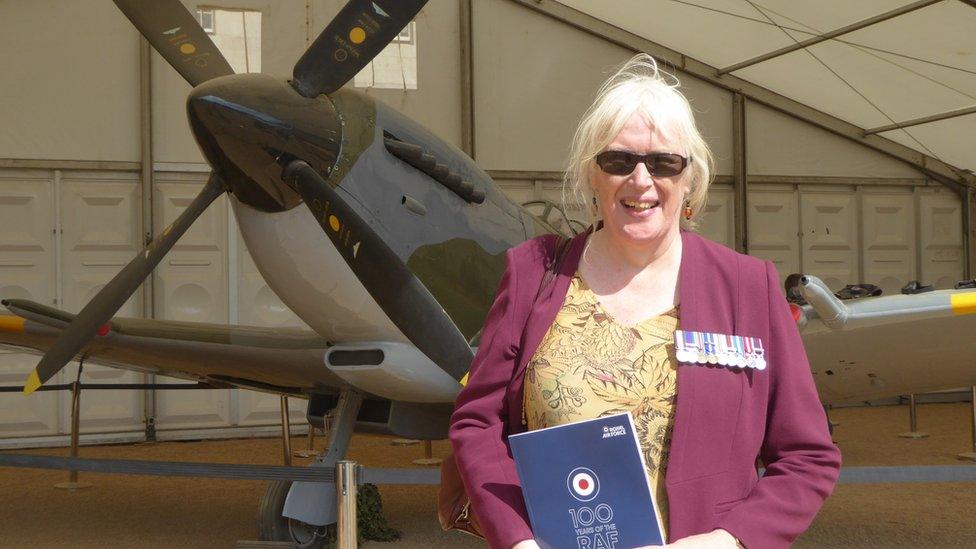
Caroline Paige: "It's not about who you are, it's about what you can do"
"I set out to be the best possible person in my role. We went out to Iraq and Afghanistan, where my job of tactics and platform protection was key, and I ended up winning lots of awards. People started realising it's not about who you are, it's about what you can do."
Meanwhile, in 2000, the UK ban on gay and bisexual people in the military was lifted and extended to transgender members in 2014.
But globally the struggle of transgender people to gain rights has ignited an explosive debate. South African author Mark Gevisser sees the so-called "Pink Line" - explained in his new book of the same name - as the frontline of the new gender and culture wars.
In terms of protection from workplace discrimination, he says the best countries are those which allow people to legally change their gender on official documents through self-determination alone, rather than any sort of "certification".
"If you arrive at a job interview presenting as a woman but your ID says that you are a man, you are immediately vulnerable to discrimination because how is the company going to process you?"
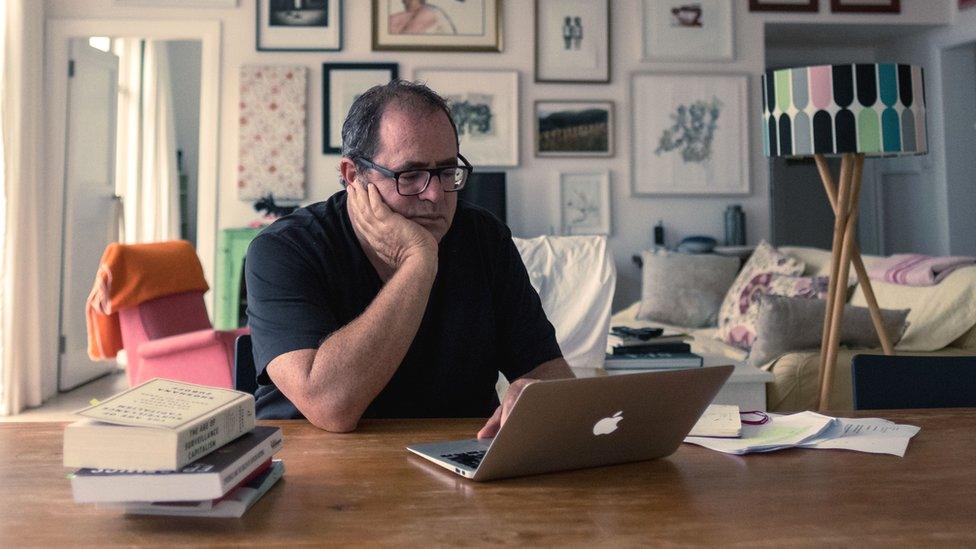
Mark Gevisser sees the so-called "Pink Line" as the frontline of new gender and culture wars
There are currently about 12 countries that allow people to legally change their gender through self-determination. Almost all of them are in western Europe or Latin America.
The issue has become contentious in some countries, says Mr Gevisser. The UK was initially considering self-determination but has since decided against this. In India, where a Supreme Court ruling allows self-determination, the government itself is now saying that some form of certification is required.
India is also one of very few countries that has mandated affirmative action in the workplace for transgender people but the stigma attached to them is preventing widespread recognition.
"Everywhere in the world there is a dance between legal recognition and social change," says Mr Gevisser.
Generations coming of age are increasingly questioning their identities and reasons for conforming to certain expectations of what being a man or a woman means - so conversations about gender and identity are only going to gather pace.
Sometimes the shifting sands of politics will reverse equality legislation, as happened in Hungary earlier this year. Leaders like Viktor Orban in Hungary or Vladimir Putin in Russia see these "'European' norms in contradiction with their national traditional values," says Mr Gevisser.
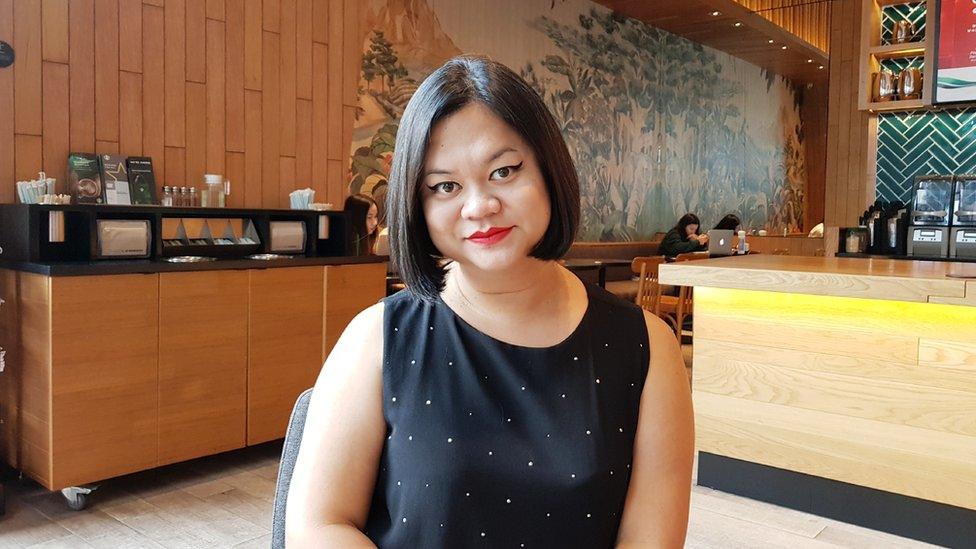
"Transgender people are not allowed in a professional society," says Kath Khangpiboon
Some countries in Asia have historically had a third gender in their cultures, giving trans people some limited rights - but campaigners are now fighting for greater recognition.
Kath Khangpiboon is a sociology lecturer at Bangkok's Thammasat University. But because Thailand does not legally allow gender changes she is still referred to as "mister" at work even though she lives as a woman.
And she has had to fight for her job. She accepted the post in 2014 but was barred from taking it up for nine months, meaning the job offer was withdrawn. She accused the university of discrimination and successfully took it to court - finally taking up her role in 2018.
Although Thailand passed its first gender equality law in 2015, the reality is often very different. Bangkok may often be the only Asian city included on lists of gay-friendly tourist destinations and is well known for its gender reassignment operations - but Kath, who now feels accepted by her work colleagues, says this image is a "big myth" for transgender Thais - especially at work.
"Transgender people work in the entertainment and beauty industries as dancers and makeup artists. Society allows them to do that," she says. "But for lawyers, lecturers and teachers that is different, because transgender people are not allowed in a professional society."
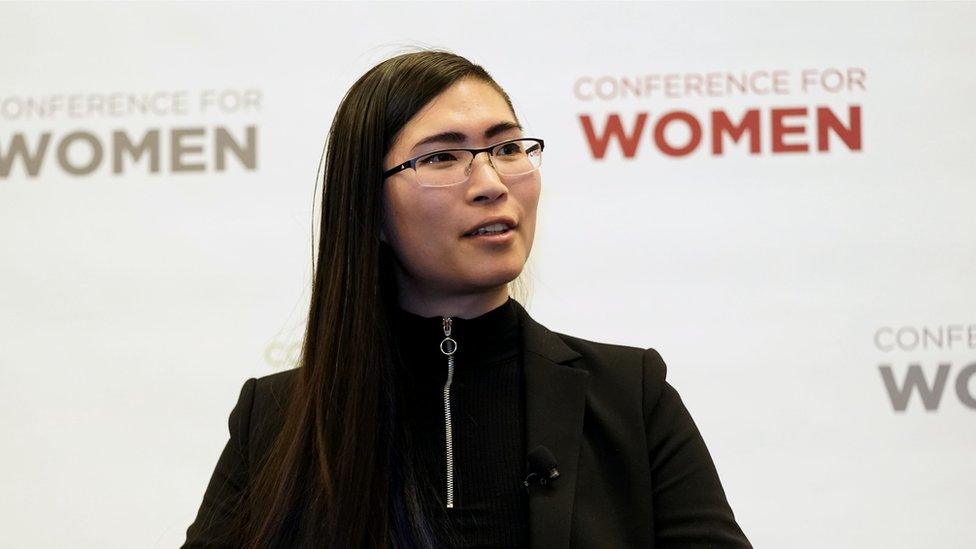
"Companies do have to take a side," says diversity consultant Lily Zheng
So what does an inclusive workplace for transgender people look like? "One where a trans person can show up as authentically as they like," says Lily Zheng, a California-based diversity consultant, who is herself transgender.
"I want to be respected. I want to be comfortable coming to work and either being very out with my trans identity or not having it mentioned at all," she says.
Lily believes the onus is on leaders, rather than transgender workers, to make it non-negotiable that people are referred to with the pronouns they introduce themselves with. But also to offer support and advice for any employees who are uncomfortable and want to learn more.
"Frankly, I would approach it in the same way if someone told me they didn't agree with black people being in the workplace or women working in the same workplace as men," she says. "Companies do have to take a side."